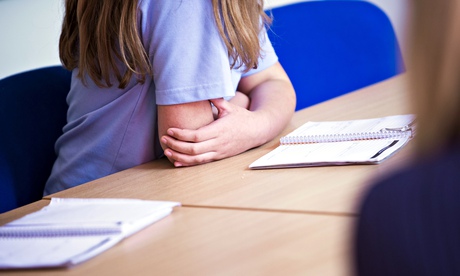The harrowing reports of sexism and assaults in schools detailed on the everyonesinvited.uk website has fuelled concerns of a “rape culture” in educational settings.
The disclosures have raised concerns that easy access to pornography is part of the problem.
It’s a complex issue – and the answer is far from clear cut. Some experts urge caution about making links, while others say porn is undermining the notion of consent.
While access to online porn is rising, experts say it is not clear whether sexual harassment, abuse and assault among young people is similarly increasing – as may be expected from a simple link between the two.
Roger Ingham, a professor of health and community psychology and director of the Centre for Sexual Health Research at the University of Southampton said greater publicity, increased awareness of what was acceptable, and even a feeling that victims would be taken more seriously, could fuel more reporting of rape or other sexual offences.
Furthermore, even if perpetrators were found to watch porn, it would remain unclear whether porn was to blame, Ingham said. “It could be, for example, that those who are more inclined to commit ‘offences’ are also more likely to access porn, so a correlation between the two cannot be assumed to indicate direct cause.”
Another problem is that even if porn is having a negative influence, controlling who sees what is difficult, both for governments and parents, while a “rape culture” is likely to fuelled by many factors.
“There will always be a small proportion of young people with serious issues in maintain[ing] responsible and respectful social interactions and relationships,” Ingham said. “It would be very naive to attribute negative behaviours to just one factor, such as porn access.”
Mark McCormack, a professor of sociology at the University of Roehampton, agreed there was a lack of evidence that sexual harassment in schools was less common in the past, adding that new technology often caused concerns – such as the worries in previous decades about whether violent films could lead to increased violence among young viewers.
According to McCormack, a key aspect of porn that needs to be explored is why people watch it, noting that while it might be linked to negative outcomes in some, for others it could be an important way to explore their sexual identity.
In addition, he said research had found those who watch porn were not more sexist than those who did not. Where porn did cause problems, he said, it tended to be indirect, for example tensions with a partner owing to non-disclosure of porn-watching – it was not necessarily the case that those who watch porn then wished to act out what they saw.
“My concern when we go to porn as the problem, that just focuses on, in a sense, a technology and a thing, and not actually the much deeper and broader issues we need to address: sexual harassment, sexism, gender inequality,” he said.
But others say pornography is problematic.
“Unfortunately the pornography that is widely available online can be graphic and aggressive, and the women depicted on some of the sites are getting younger and younger, borderline to being illegal,” said Dr Elena Martellozzo, an associate professor in criminology at Middlesex University.
Martellozzo added that the message that men had a “right” to women’s bodies undermined the notion of consent. “This is the definition of rape culture in a nutshell,” she said.
According to research by Martellozzo and colleagues based on data collected in between 2015 and 2016 and published this year, 65% of 15- to 16-year-olds in the UK reported seeing pornography, with porn more commonly seen by boys.
Just over half of the 241 of boys in the study aged 11-16 who had seen porn said they thought it was ‘realistic’ compared with 39% of 195 girls in the study who had seen porn, with 44% of boys and 29% of girls saying it had given them ideas to try out.
Martellozzo added the concerns were not a “moral panic”, and that she and others are working towards controlling what was available online.
“We can’t of course generalise and say that everybody that watches porn would move on into wanting to act out what they had seen, but we do know that some young men do want to act out what they have seen and therefore expecting girls to respond to their request, respond to their desire of performance,” she said.
Dr Leila Frodsham, a consultant gynaecologist and spokesperson for the Royal College of Obstetricians and Gynaecologists, said there could be other consequences of young people watching porn.“One knock-on effect that people might not consider is girls and women feeling their genitalia should look a certain way because that’s what they have seen in the mass media or that’s what boys are seeing through pornography and telling girls,” she said.
“We are very concerned by reports that labiaplasty rates – surgery to change the look of the vagina – are increasing in under 18s, especially as there is no scientific reason to support its practice.”
Experts agree better sex education is crucial. “What is needed is open, serious, honest conversations about sexual consent, about sex in relationships and about the broader context and the complexities [of sex],” McCormack said.
Martellozzo added there needed to be a shift in emphasis away from blaming victims of sexual harassment and abuse and instead a focus on perpetrators. “The emphasis here is really to educate the individual, and demonstrate to them that the effects of their choice of language or action is huge ,” she said.
Frodsham also stressed the need for better education. “Pornography provides children and young people with a false impression of what to expect when they do start having sex, and can set unrealistic goals for boys and girls when it comes to exploring their sexuality,” she said.
“It’s widely disputed whether porn directly influences a rape culture. What is clear is that the matter of consent and what a healthy relationship looks like needs to be tackled head on in the school curriculum, so that boys and girls learn to respect one another and girls know to raise the alarm if they do experience abuse.”











